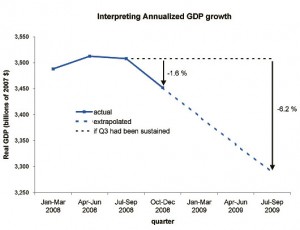French theorist Jean Baudrillard (1929-2007) was a sharp critic of contemporary society who twisted philosophy, social theory and cultural metaphysics into a chaotic ball of illuminating knots. The snippet below is from his 1970, The Consumer Society: Myths & Structures. This section is titled The Miraculous Status of Consumption.
The usage of signs is always ambivalent. Its function is always a conjuring – both a conjuring up and a conjuring away; causing something to emerge in order to capture it in signs (forces, reality, happiness, etc.) and evoking something in order to deny and repress it. We know that, in its myths, magical thought seeks to conjure away change and history. In a way, the generalized consumption of images, of facts, of information aims also to conjure away the real with signs of the real, to conjure away history with the signs of change, etc.
Reality we consume in either anticipatory or retrospective mode. At any rate, we do so at a distance, a distance which is that of the sign. For example, when Paris-Match showed us the secret forces assigned to protect the general [De Gaulle] training with machine guns in the basement of Prefecture, that image was not read as ‘information’ i.e. as referring to the political context and its elucidation. For every one of us, it bore within it the temptation of a superb assassination attempt, a prodigious violent event; the attempt will take place, it is going to take place; the image is the forerunner to it, and embodies the anticipated pleasure; all perversions have their acting out. What we see here is the same inverse effect as in the expectation of miraculous abundance within the cargo cult. Cargo or catastrophe – in both cases, we have an effect of consumed vertigo.
We may, admittedly, say that it is, then, our fantasies which come to be signified in the image and consumed in it. But this psychological aspect interests us less than what comes into the image to be both consumed in it and repressed: the real world, the event, history.
What characterizes consumer society is the universality of the news item [le fait divers] in mass communication. All political, history and cultural information is received in the same – at once anodyne and miraculous – form of the news item. It is entirely actualized – i.e. dramatized by the spectacular mode – and entirely deactualized – i.e. distanced by the communications medium and reduced to signs. The news item is thus not one category among others, but the cardinal category of our magical thinking, of our mythology.
That mythology is buttressed by the all the more voracious demand for reality, for ‘truth’, for ‘objectivity’. Everywhere we find cinema verite’, live reporting, the newsflash, the high-impact photo, the eye-witness report, etc. Everywhere what is sought is the ‘heart of the event’, the ‘heart of the battle’, the ‘live’, the ‘face to face’ – the dizzy sense of a total presence at the event, the Great Thrill of Lived Reality – i.e. the miracle once again, since the truth of the media report, televised and taped, is that I was not there. But it is the truer than true which counts or, in other words, the fact of being there without being there. Or, to put it another way, the fantasy.
What mass communications give us is not reality, but the dizzying whirl of reality [le vertige de la realite’]. Or again, without playing on words, a reality without the dizzying whirl, for the heart of Amazonia, the heart of reality, the heart of passion, the heart of war, this ‘Heart’ which is the locus of mass communications and which gives them their vertiginous sentimentality, is precisely the place where nothing happens. It is the allegorical sign of passion and of the event. And signs are sources of security.
So we live, sheltered by signs, in the denial of the real. A miraculous security: when we look at the images of the world, who can distinguish this brief irruption of reality from the profound pleasure of not being there? The image, the sign, the message – all these things we ‘consume’ – represent our tranquility consecrated by distance from the world, a distance more comforted by the allusion to the real (even where the allusion is violent) than compromised by it.


